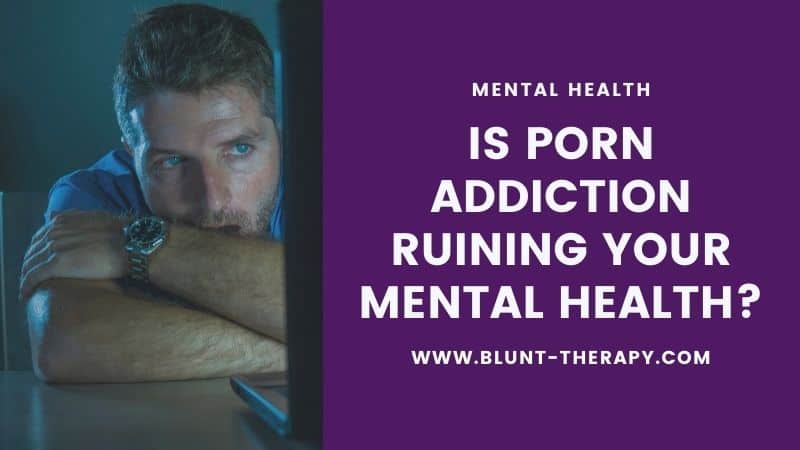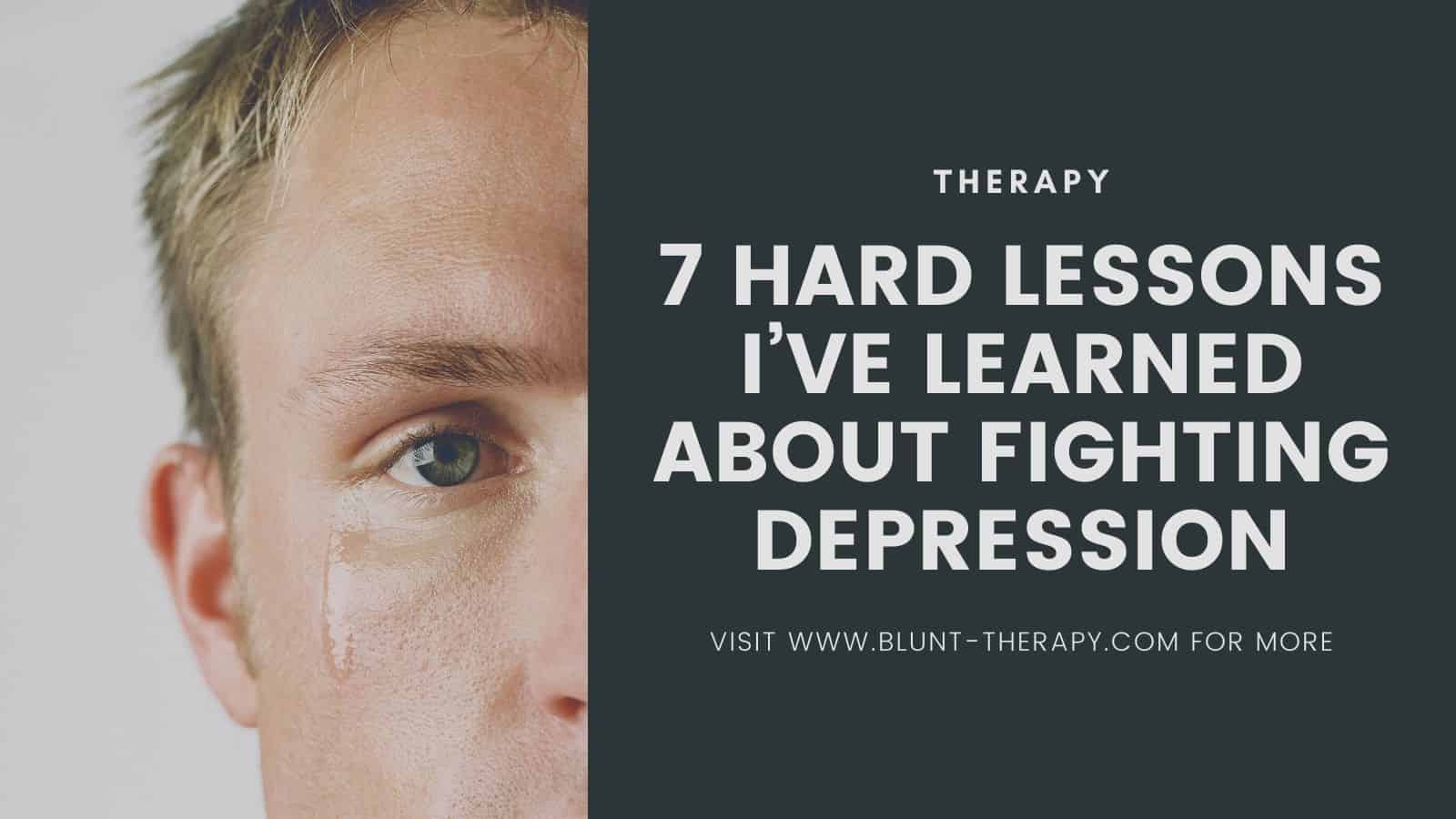Table of Contents
Affiliate link notice: As an affiliate of BetterHelp and other third-party vendors, We will receive compensation if you make a purchase using the links provided on this page. For more information, visit our disclosure page.
Last Updated on April 3, 2023 by Randy Withers, LCMHC
The global pandemic has spread fear, anxiety, and depression almost as much as it has spread physical health ailments. Millions of people have been cooped up in their homes, unable to attend regular in-person therapy appointments while their mental health suffers.
In America, it’s predicted that the country is on the verge of another health crisis due to an uncertain economy, isolation, and general psychological trauma.
As a result, we’ve witnessed a large jump in teletherapy appointments. These are online therapy sessions in which patients can speak to a real, licensed therapist without leaving the safety of their homes. Some sessions are conducted over the phone, while others are completed through video chats or instant messaging.
Online therapy sessions certainly hold benefits for many patients and they seem to be normalizing mental healthcare in a time when we truly need to shed a positive light on therapy.
However, we won’t lie – online therapy isn’t for everyone. It has its own set of pros and cons. To help you determine if online therapy seems like a match for your particular situation, we have three big questions you should ask yourself.

1. Will You Miss the “Real” Therapy Experience?
Up to 98 percent of surveyed users claim that online counseling is much more convenient than regular therapy, and up to 88 percent claim that it’s more affordable.
The question is, are online therapy sessions as effective? Many studies indicate yes.
A 2014 study published in the Journal of Affective Disorders found that online treatment was just as effective as in-person treatment for depression. Similarly, a more recent study in 2018 indicated that online cognitive behavioral therapy is as effective as face-to-face treatment for panic disorders, social anxiety, and general anxiety.
In a review of studies published in the World Journal of Psychiatry, patients receiving mental health treatment through video conferencing reported “high levels of satisfaction.“
However, that’s not to say that the two types of therapy are exactly the same.
As Amy Morin points out in Psychology Today, “One of the biggest concerns about online therapy is that therapists don’t have an opportunity to observe the patient — something that is usually integral to an assessment and diagnosis. The tone of voice, body language, and overall demeanor provide insight into an individual’s well-being.”
Although this concern can be somewhat mitigated by using video calls rather than just phone calls or text messages, it’s clear that online therapy does lack that same feel as in-person therapy. For some, this might be a deal-breaker.
In one survey, 85 percent of respondents were comfortable in their ability to talk during teletherapy appointments. However, they did feel slightly less supported and encouraged during online therapy compared to in-person therapy.
The question we want you to ask yourself is this: will I miss out on the in-person therapy experience?
- Will you miss speaking with a therapist you trust?
- Feeling their warmth and body language as you express your feelings?
- Having the consistency of driving to and attending face-to-face appointments?
There’s not a right or wrong answer to this question. Depending on your particular personality or the struggles you’re facing, you may feel more or less comfortable sticking to over the phone/computer communication, and that’s perfectly fine.
2. Do You Have a Safe Space Where You Can Talk Openly?
One of the biggest concerns many people have about using online therapy services is the lack of privacy.
Whether they’re struggling to find a safe place to speak in their own home or they’re worried about their therapist’s online environment, many users are concerned that their information might not stay as “confidential” as it would in a regular in-person therapy environment.
To be frank, it’s a fair concern.
However, most online therapists take confidentiality very seriously and many use a HIPAA compliant platform to conduct their services.

For instance, BetterHelp online counseling has an encryption system from a world leader in data security. Even your messages with therapists are encrypted, and all BetterHelp counselors are state certified and subject to the same privacy laws as other therapists.
Additionally, users often have the option to provide a fake name or act anonymously, which can remove any fears of exposure or embarrassment. If you’re worried about privacy, you can ask your therapist questions about their encryption system and what you can do on a personal level to help protect your privacy.
All in all, we think it’s pretty safe to say that privacy isn’t the biggest problem. The real concern is that you won’t feel safe and comfortable going through therapy in your own home, car, or wherever you choose to conduct the session.
In order for online therapy to work for you, you’ll need to find a safe space where you can truly talk openly about your feelings and problems, as well as listen to your therapist’s feedback. If you’re living at home with other family members and/or friends, this can be challenging.
Some tips for establishing a place to have a productive therapy session:
- Pick a spot ahead of time and plan around the session
- Try to schedule your sessions when you know fewer people/distractions will be present
- Be willing to experiment until you find a place that feels totally “safe”
- Think about the places where you feel most comfortable speaking openly
The phrase “safe space” isn’t just a term for college students who don’t want to be judged. It’s a serious concept that defines a place where individuals feel they can truly express themselves without risks or negative consequences.
Any therapist worth their title knows that cultivating inner and outer safety for clients is essential. However, this can be difficult to achieve when you’re not in the same space as the patient.
So, if you’re thinking about sticking with online therapy rather than in-person sessions, ask yourself if you can truly create a safe space for yourself.
Join BetterHelp today and get 10% off your membership.
If you’re constantly on edge, in public, or surrounded by distractions that make you feel uncomfortable, online therapy certainly won’t be as effective as a in-person therapy session.
For instance, BetterHelp has an encryption system from a world leader in data security. Even your messages with therapists are encrypted, and all BetterHelp counselors are state certified and subject to the same privacy laws as other therapists.
Additionally, users often have the option to provide a fake name or act anonymously, which can help qualm any fears of exposure or embarrassment.
All in all, we think it’s pretty safe to say that privacy isn’t the biggest problem. The real concern is that you won’t feel safe and comfortable going through therapy in your own home, car, or wherever you choose to conduct the session.
3. Will You Actually Stick to It?
Consistency is key for many patients when it comes to healing and making progress with their therapy goals. When there are large gaps between sessions or the patient only schedules sessions at their lowest mental state, it’s difficult to get real work done on a long-term scale.
That’s why so many therapists suggest weekly sessions – to hold patients accountable and consistently work toward a healthier, happier lifestyle.
The great thing about many online therapy providers is that patients receive more consistent communication. You can contact your therapist on a more regular basis, whenever you feel the need to talk or ask for help. If the therapist isn’t readily available to chat, the client can always leave a message.
On the other hand, online therapy is just that – online. For many, this makes it easier to attend a counseling session, then drop off the map when they feel they no longer need it.
For instance, think about health apps. Studies have found that only 25 percent of participants who use a commercial weight-loss app stuck with it. The question at hand is: will we find similar results with mental health apps as time progresses?
According to TalkSpace, therapy is most productive when delivered once a week for 45 minutes over 12-16 weeks. That means you need to commit to therapy for at least 3 months.
With that said, our final question for you is this: will you actually stick to online therapy?
If you feel it will be difficult to force yourself to attend sessions that you can easily cancel, or you might be tempted to delete the app when you’re not in the mood to use it, consistent in-person therapy sessions might be the best solution for you.
On the other hand, if you like to be able to talk to your therapist more frequently from the comfort of your own home, online therapy services might be the right move for you.
Final Thoughts
Online therapy is growing in popularity by the day, and it will become increasingly normalized as the years go on, pandemic or no pandemic.
Still, there will always be people who benefit more from in-person therapy because of their particular conditions, personality, or struggles. If you feel that online therapy is right for you, great! There are dozens of online therapists out there waiting to help you improve your life.
If not, don’t sweat it! There’s nothing wrong with sticking with traditional therapy if that is what works best for you.










Very enlightening article on the pros and cons of online therapy. It’s popularity is growing! Thank you for sharing.